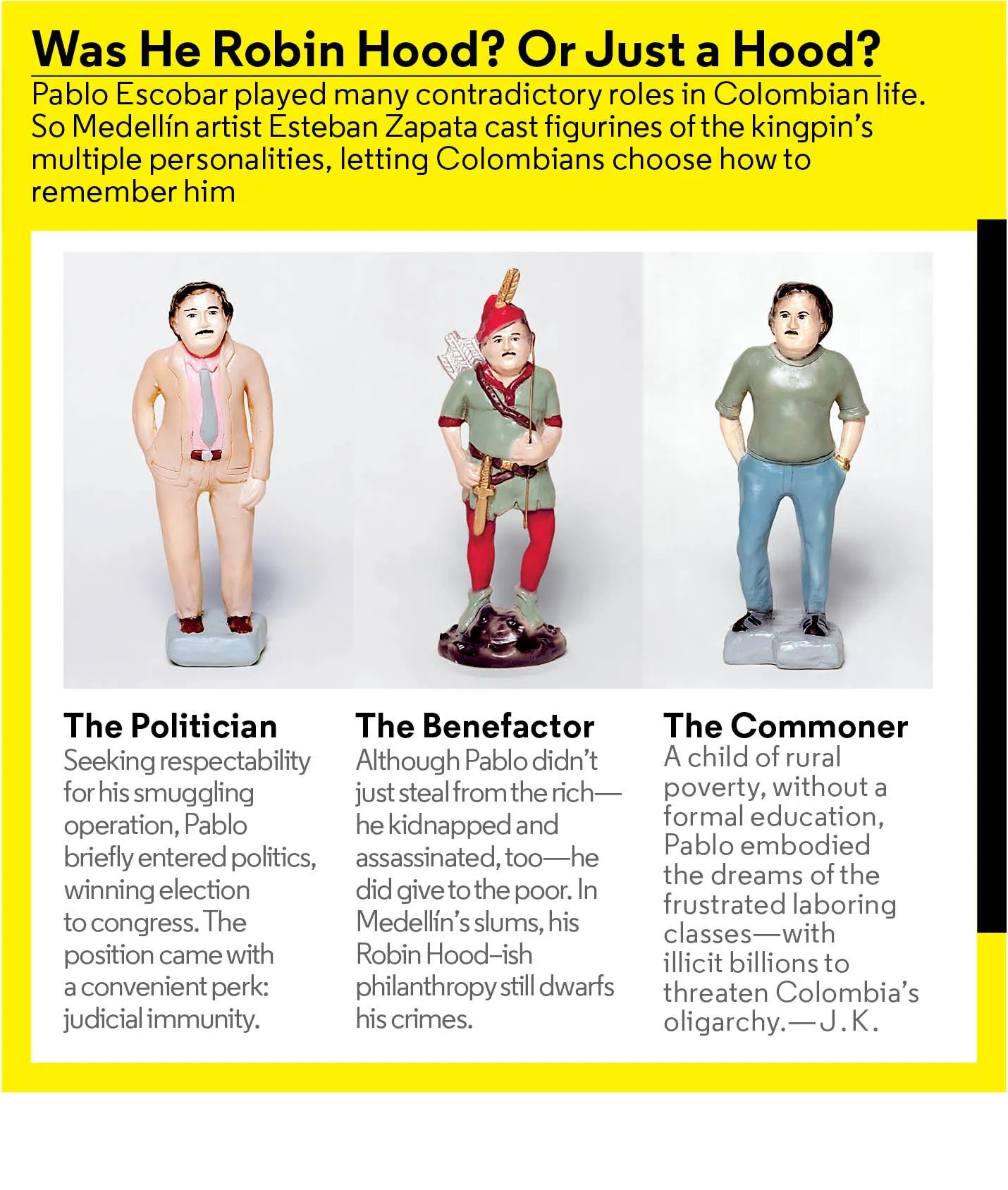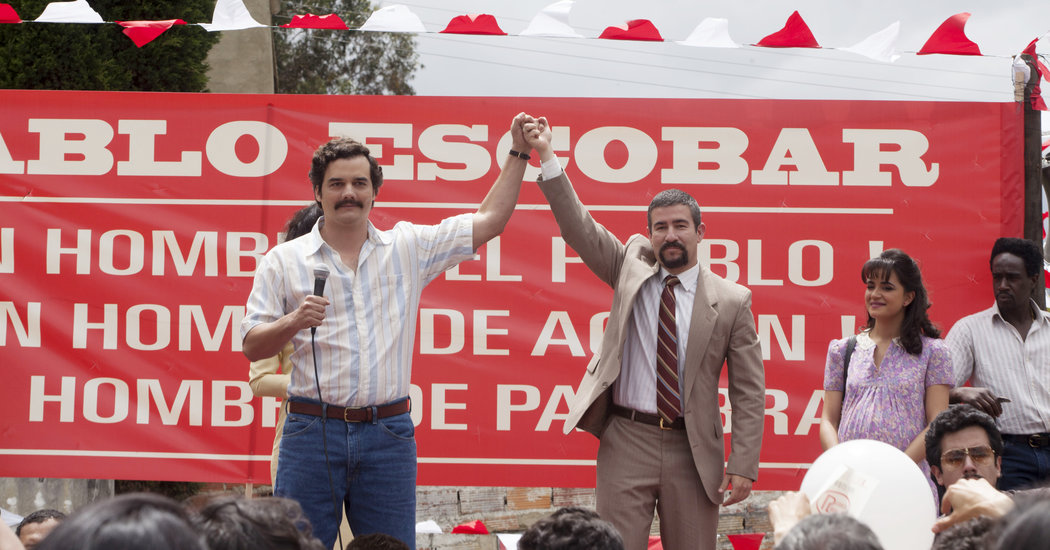Pablo Escobar, a name that resonates with both admiration and disdain, is often remembered for his notorious reign as a drug lord. However, beneath the layers of violence and crime lies a complex figure whose philanthropic acts have sparked debate and intrigue. The paradox of Escobar's life raises questions about morality, wealth distribution, and the impact of one individual on an entire community. Despite his criminal activities, Escobar's philanthropic efforts have left a significant mark on Colombian society, particularly in the poorer neighborhoods of Medellín.
In the 1980s and early 1990s, as Escobar amassed immense wealth through the cocaine trade, he simultaneously sought to build a legacy that would endear him to the people of Colombia. His philanthropy was characterized by building schools, sports facilities, and housing projects aimed at uplifting the underprivileged. This duality of being both a benefactor and a criminal continues to perplex historians and sociologists alike, prompting discussions about the implications of his actions.
The legacy of Pablo Escobar's philanthropy is a testament to the complex nature of human behavior. It challenges the conventional narratives of good and evil, forcing us to reconsider how we define altruism in the context of moral compromise. As we delve deeper into Escobar's life, we uncover the motivations behind his philanthropic endeavors and their lasting impact on Colombian society.
Who Was Pablo Escobar?
Pablo Escobar was born on December 1, 1949, in Rionegro, Colombia. He rose from humble beginnings to become one of the wealthiest and most powerful drug lords in history. His influence extended beyond the drug trade, impacting politics, society, and culture in Colombia.
Personal Details and Bio Data
| Attribute | Details |
|---|---|
| Full Name | Pablo Emilio Escobar Gaviria |
| Date of Birth | December 1, 1949 |
| Place of Birth | Rionegro, Colombia |
| Occupation | Drug Lord, Philanthropist |
| Notable Organization | Medellín Cartel |
| Death | December 2, 1993 |
What Were Escobar's Philanthropic Contributions?
Despite his criminal background, Pablo Escobar's philanthropy is often highlighted by his contributions to various social causes. Here are some notable examples of his philanthropic efforts:
- Schools and Educational Facilities: Escobar funded the construction of numerous schools in impoverished neighborhoods, believing that education was the key to breaking the cycle of poverty.
- Housing Projects: He initiated housing projects aimed at providing safe and affordable homes for those living in slums.
- Sports Facilities: Escobar invested in sports programs, building soccer fields and basketball courts to promote physical activity among the youth.
- Healthcare Initiatives: He also contributed to healthcare services, constructing hospitals and clinics to serve the underserved populations.
Why Did Escobar Engage in Philanthropy?
The motivations behind Pablo Escobar's philanthropic activities are multifaceted. Some suggest that he sought to cultivate a positive public image, hoping to gain the loyalty of the people in Medellín. By portraying himself as a benefactor, Escobar aimed to create a buffer against the government's crackdown on his drug operations.
Others argue that his philanthropy was a way to alleviate his guilt for the violence and suffering caused by his drug empire. In a sense, it was an attempt to balance the scales of morality, as he recognized the harm he inflicted on society.
How Did Escobar's Philanthropy Affect Medellín?
The impact of Pablo Escobar's philanthropy on Medellín was significant, albeit complicated. On one hand, his contributions improved the living conditions of many families, providing access to education, healthcare, and recreational facilities. This led to a sense of loyalty among the people, who viewed him as a protector of their community.
On the other hand, his philanthropic efforts were overshadowed by the violence and instability that accompanied his drug trade. The paradox of being both a savior and a destroyer created a complex legacy that continues to influence perceptions of Escobar in Colombia and beyond.
What Is the Legacy of Escobar's Philanthropy Today?
Today, the legacy of Pablo Escobar's philanthropy remains a topic of debate. While some remember him for his charitable contributions, others cannot overlook the bloodshed and chaos that marked his reign. His philanthropic acts have been both celebrated and condemned, reflecting the duality of his character.
In Medellín, many still grapple with the remnants of his influence. Some communities continue to benefit from the institutions he built, while others are left to deal with the consequences of his criminal empire. This duality prompts ongoing discussions about the nature of altruism and the complexities of human behavior.
Can Philanthropy Justify Criminal Actions?
The question of whether philanthropy can justify criminal actions is a contentious issue. In the case of Pablo Escobar, his charitable deeds do not erase the violence and suffering caused by his drug trade. However, they raise important questions about the nature of morality and the motivations behind acts of generosity.
Many argue that true philanthropy should come from a place of selflessness, devoid of ulterior motives. Yet, Escobar’s actions challenge this notion, forcing society to confront the uncomfortable reality that individuals can possess both virtuous and villainous traits.
What Can We Learn from Escobar's Philanthropy?
The story of Pablo Escobar's philanthropy serves as a cautionary tale about the complexities of human nature. It underscores the importance of scrutinizing the motivations behind charitable acts and recognizing that even those with the best intentions can be flawed. As we reflect on Escobar's legacy, we are reminded that the line between good and evil is often blurred, and that the impact of one individual's actions can reverberate through society for generations.
In conclusion, Pablo Escobar's philanthropy is a fascinating yet troubling aspect of his life. It challenges our understanding of morality and altruism, prompting us to consider the lasting effects of his actions on Colombian society. As we continue to explore this duality, we must remain vigilant in our pursuit of true compassion, ensuring that our charitable endeavors stem from a place of genuine care for others.



ncG1vNJzZmixn6PAtr7IZqWeq6RjsLC5jpycpZ2Sp7a1xZBuZqmZkqG8brHSnKabmaJivam1y5qlraCipL26esetpKU%3D